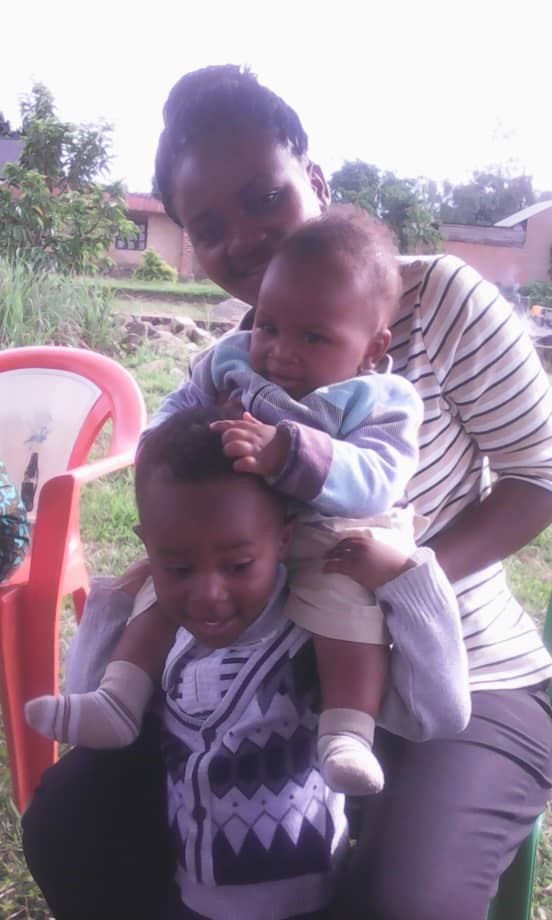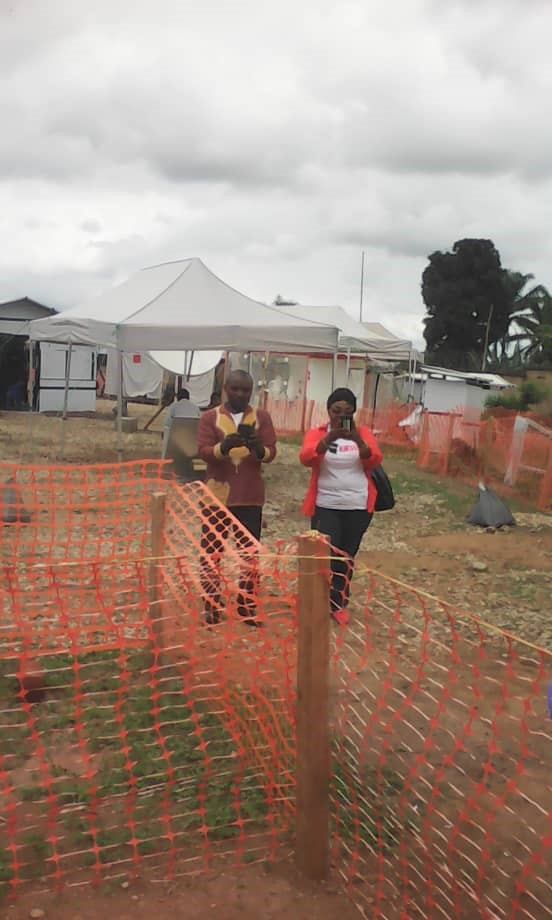For more than three years, Madame Esperance seemed to lose hope in life. The future suddenly became dark for her when doctors revealed that she was infected by the Ebola Virus and that she could no longer go home and see her 11-month-old boy before being forced to quarantine. She had good knowledge of the disease from the media but she never imagined that as a medical doctor's wife, she could suffer from it herself.
"For a long time, I mistakenly thought that the disease is for the poor, unhygienic people or those who eat bushmeat," she told the UNFPA team. She adds: "I was devastated afterwards to know that my husband was already suffering from it." In fact, before the epidemic outbreak on August 1, 2018, he had already contracted the virus and was trying, with the help of his colleagues of the the Referral Health Center of Mangodomu, to control its symptoms which were mainly headache, fatigue, fever and angina. But, with the onset of stomach aches, he quickly decided to join me (his wife) living in the town of Beni. He was hospitalized in a clinic in Beni for a week without success. “Following the advice of the family, after they learned of my husband's deteriorating state of health, he was transferred to the Oïcha sector General Reference Hospital”.
"IF I HADN'T BEEN INFECTED, HE WOULD HAVE DIED WITHOUT US KNOWING THAT HE SUFFERED FROM EBOLA VIRAL DISEASE “

“Medical personnel at the Oïcha's referral general hospital took my husband's blood and sent it to a clinic in Beni for specialized examinations. They discharged him on the ground that he had been poisoned”. While my husband was trying to recover, I developed a severe fever, headache and pain in the flanks. I was consulted at the Oïcha General Hospital.
At this time, the epidemic had already been announced in the province and when Esperance’s test came out positive, it ran a bell in the minds of the team of investigators who ended up finding her husband dying in his hiding place in Oïcha. Esperance is categorical "If I had not been infected, my husband would have died of an" unknown disease "she exclaimed because in the meantime, when her husband -the doctor- was out of the hospital (at home to treat the alleged poison), the Mangina area had already become the epicenter of the disease and more than ten of his healthcare colleagues had already tested positive.
"THIS ILLNESS LEFT ME A PSYCHOLOGICAL SHOCK"

The couple were taken care of in the Ebola Treatment Center (CTE) in Béni. After recovery, Esperance was hired in the makeshift nursery to look after babies whose mothers were admitted at the CTE for care while her husband was assigned as an attending physician in the same CTE.
Life was hard for her because more than 60% of the sick had died and their homes began to be stigmatized within the community. Esperance started experiencing violent torments and could not bear the atmosphere of suspicion and stigma. She had to be admitted for a month in the neuropsychiatry department at Beni hospital before completing her mission of attending to babies at the makeshift nursery which lasted til the end of the epidemic on June 25, 2020. In the meantime, the couple received psycho-medical care from September 2018 to November 2019
"WE ARE WAITING FOR GOD'S TIME"
"I have already had two failed attempts”. Espérance confessed to the UNFPA team adding that the last one was a molar pregnancy that could not relate with the Ebola survivorship, but she will rather turn to divine providence: "We are waiting for the hour of God. "Unlike this couple, many survivors have already been blessed with new babies whose breastfeeding are hardly being monitored by the medical professionals. Within the Association des Vainqueurs (survivors of EVD) of North Kivu province, there are already more than twenty at-risk births and UNFPA and other United Nations agencies are working to encourage them to adopt best practices of contraception and family planning. Medical researche revealed that, after recovery, the virus can stay in the human body for a variable period of time, for some people it can stay for more than 500 days. For Esperance, this delay may seem unbearable for her young age, which is why the couple engaged alongside the UNFPA to sensitize young people on the risks associated with non-compliance with the prescription of condom use by partners who have survived the disease
By Mamie Gabrielle Masaki, Dr Jean-Paul Makay et Theophane Patinvoh


